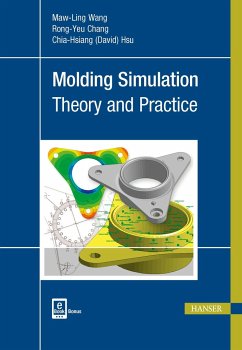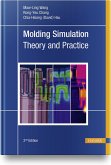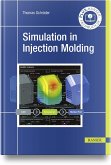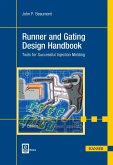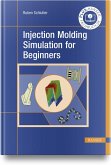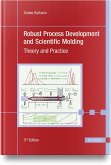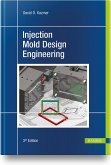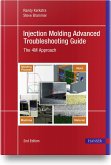This practical introductory guide to injection molding simulation is aimed at both practicing engineers and students. It will help the reader to innovate and improve part design and molding processes, essential for efficient manufacturing.
A user-friendly, case-study-based approach is applied, enhanced by many illustrations in full color. The book is conceptually divided into three parts:
Chapters 1-5 introduce the fundamentals of injection molding, focusing the factors governing molding quality and how molding simulation methodology is developed. As they are essential to molding quality, the rheological, thermodynamic, thermal, mechanical, kinetic properties of plastics are fully elaborated in this part, as well as curing kinetics for thermoset plastics.
Chapters 6-11 introduce CAE verification of design, a valuable tool for both part and mold designers toward avoiding molding problems in the design stage and to solve issues encountered in injection molding.This part covers design guidelines of part, gating, runner, and cooling channel systems. Temperature control in hot runner systems, prediction and control of warpage, and fiber orientation are also discussed.
Chapters 12-17 introduce research and development in innovative molding, illustrating how CAE is applied to advanced molding techniques, including co-/bi-Injection molding, gas-/water-assisted injection molding, foam injection molding, powder injection molding, resin transfer molding, and integrated circuit packaging.
The authors come from the creative simulation team at CoreTech System (Moldex3D), winner of the PPS James L. White Innovation Award 2015. Several CAE case study exercises for execution in the Moldex3D software are included to allow readers to practice what they have learned and test their understanding.
A user-friendly, case-study-based approach is applied, enhanced by many illustrations in full color. The book is conceptually divided into three parts:
Chapters 1-5 introduce the fundamentals of injection molding, focusing the factors governing molding quality and how molding simulation methodology is developed. As they are essential to molding quality, the rheological, thermodynamic, thermal, mechanical, kinetic properties of plastics are fully elaborated in this part, as well as curing kinetics for thermoset plastics.
Chapters 6-11 introduce CAE verification of design, a valuable tool for both part and mold designers toward avoiding molding problems in the design stage and to solve issues encountered in injection molding.This part covers design guidelines of part, gating, runner, and cooling channel systems. Temperature control in hot runner systems, prediction and control of warpage, and fiber orientation are also discussed.
Chapters 12-17 introduce research and development in innovative molding, illustrating how CAE is applied to advanced molding techniques, including co-/bi-Injection molding, gas-/water-assisted injection molding, foam injection molding, powder injection molding, resin transfer molding, and integrated circuit packaging.
The authors come from the creative simulation team at CoreTech System (Moldex3D), winner of the PPS James L. White Innovation Award 2015. Several CAE case study exercises for execution in the Moldex3D software are included to allow readers to practice what they have learned and test their understanding.

